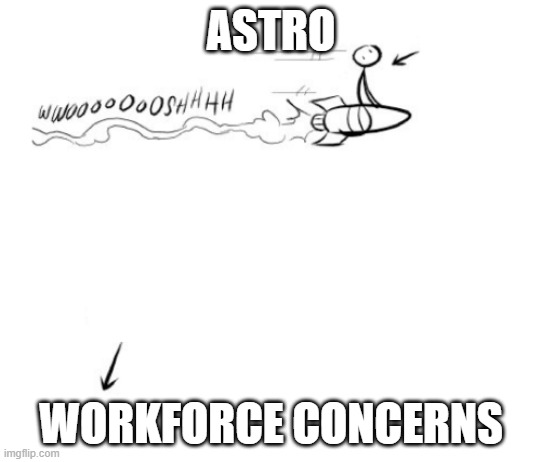On the topic of the workforce, we keep blowing past the fact that SCAROP is running an anti-trust racket against it's own trainees. When I explain this to non-medical friends, they think I am making it up because it seems so obviously illegal. There was an outpouring of support last summer from a huge range of radiation oncologists of all ages when I brought this up on Twitter. Another society even reached out to discuss solutions to this problem. I promise you that action on this issue would be nearly universally appreciated, maybe except by the chairs running the racket.
When I brought it up last summer, I had an exchange with Emily Wilson from ASTRO. She at first tried to lie about the SCAROP survey purchase policy, and those shenanigans were documented on Twitter at the time. Once we started having a real conversation about buying the survey, here is what she said to me on August 24, 2022:
"As you can imagine, the salary information was given by the institutions with the understanding that it would not be made public, so it will remain with SCAROP members. But as I mentioned, I am hoping that the SCAROP leaders will agree to creating some kind of executive summary with trends and regional snapshots. More to come after the next SCAROP leadership call next month. If there is specific information you are looking for in such an exec summary, let me know."
(Ha, yes Emily, I can imagine. This is one reason why we have anti-trust laws in the US. Anyway...)
I told her no. First of all, I couldn't even see the table of contents, so it was hard for me to pick out specific parts. But, really I wanted the whole report.
In December, this article was submitted to Advances:
https://www.advancesradonc.org/article/S2452-1094(23)00039-8/pdf. It is supported by SCAROP, as stated.
This paper is making important claims. I know some of the authors and think they are good scientists, but this paper is unusual in that it so copiously reports salary difference risk ratios without a single absolute number in the entire manuscript. If I reviewed for ASTRO, I would have brought this up in review. I want to be clear that I do not refute the claims in the paper. However, if I was a graduating resident, these data in a SCAROP funded study that contains only risk ratios, I'd be a little curious about what was left out of this paper.
When I saw this article, I emailed Advances to see if I could have access to the data. It was in pre-publication and no data sharing statement was published. Im sure you will be shocked to hear the answer was no, I could not access the data.
An excerpt from the ASTRO Journals Data Sharing Policy: "
In the interest of transparency and in support of Findable, Accessible, Interoperable, and Reusable (FAIR) data principles, however, authors are asked to include a data availability statement with their submitted work"
Okay, thats FAIR (ha puns). Here is the data availability statement from the paper, now fully published: "Research data are not available at this time."
Here are some examples of data sharing statements ASTRO gives, you decide if this is a high quality sharing statement:
Data Sharing - ASTRO Journals - American Society for Radiation Oncology (ASTRO)
Do you think that anyone should accept these events as an honest response to a serious concern about wage fixing?
Keep in mind at the time, I was an ASTRO member who had put in many hours of volunteer effort and worked for the newly elected ASTRO president. That is probably as close as I will ever get to the ASTRO secret society and it wasn't enough.
We are all very smart adults here. How many "root cause analyses" of these inflection points need to point to leadership for people to accept that we have a leadership problem?
We have a leadership problem.
We have a leadership problem.
Maybe if I say it one more time someone will pop out of my mirror and help?




